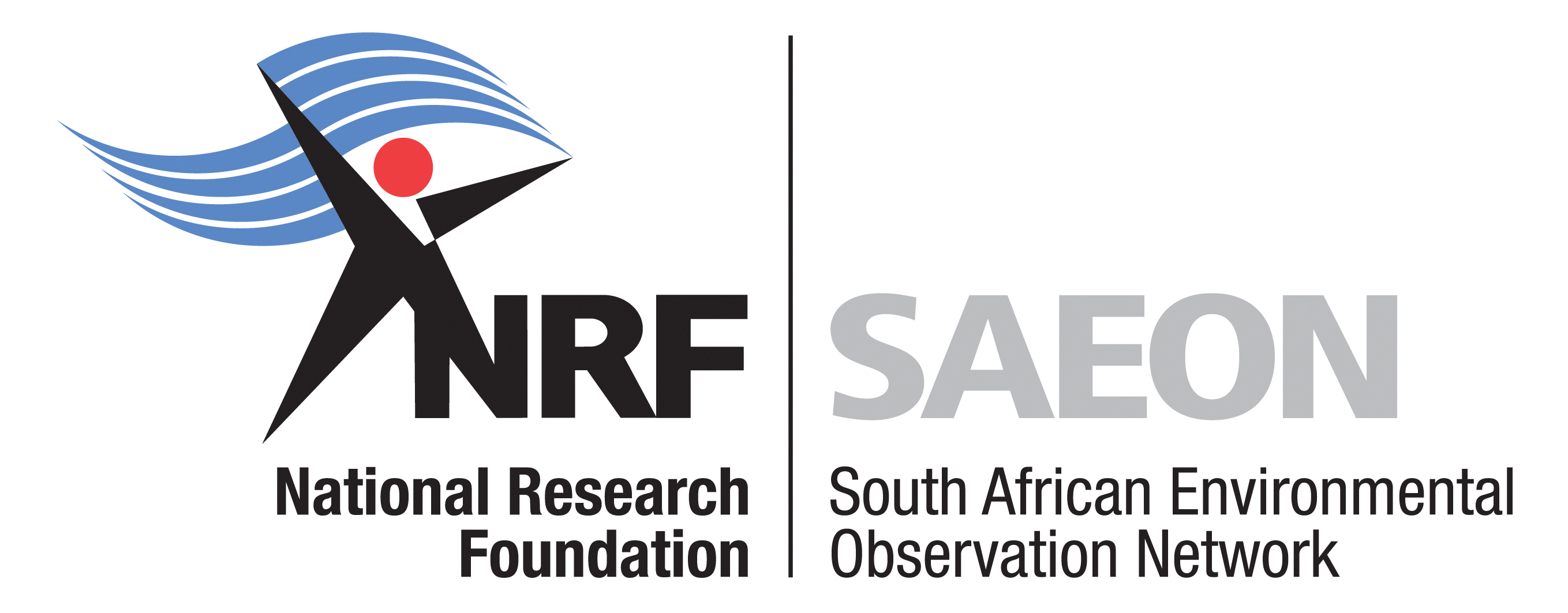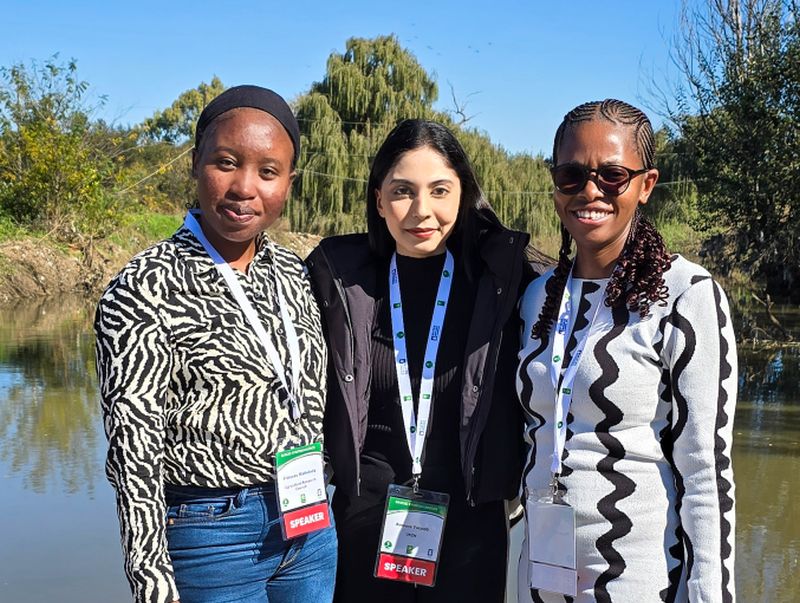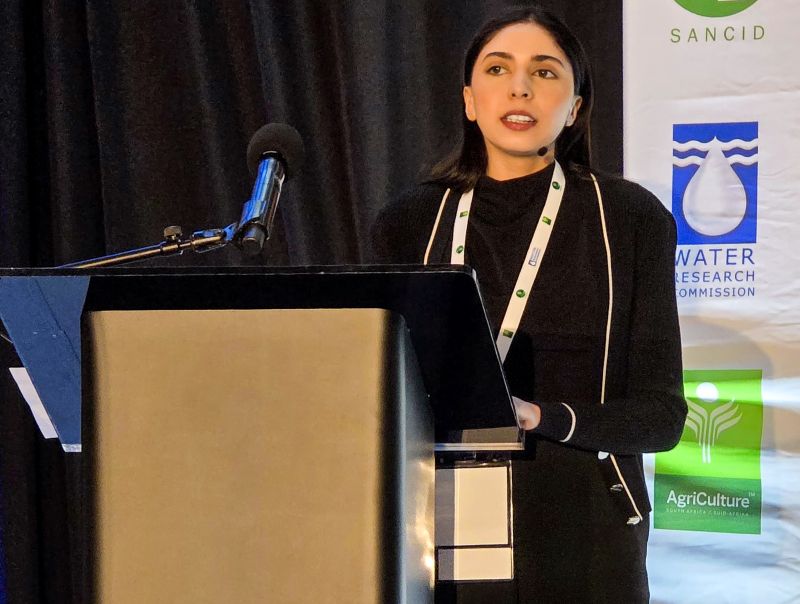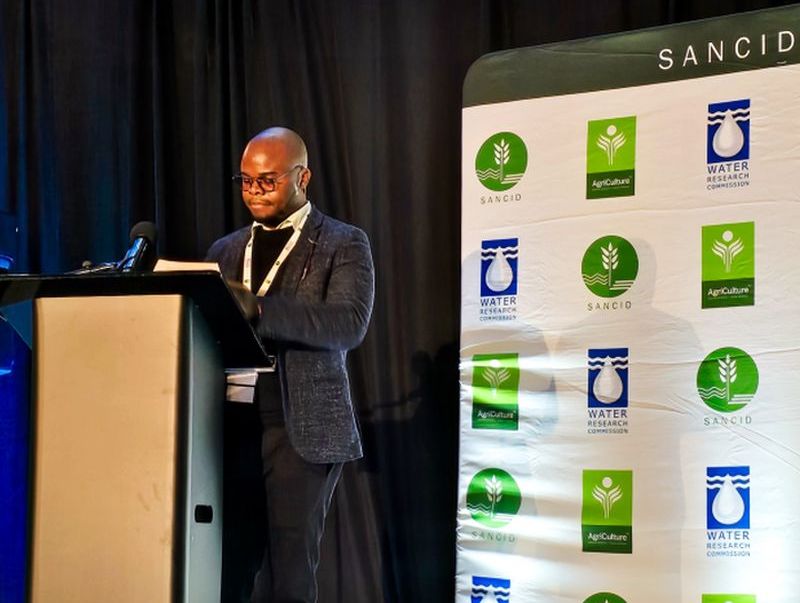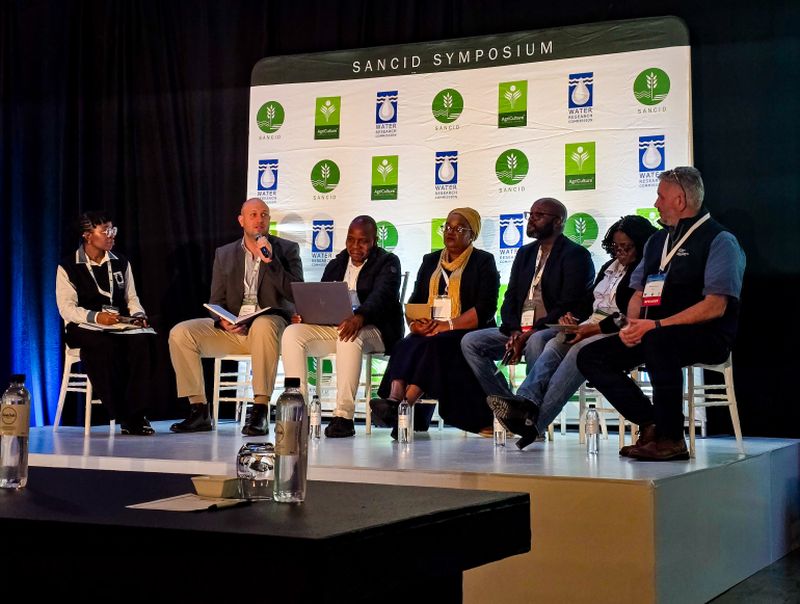eNews
#03 2025
Exploring innovative strategies for sustainable irrigation and smallholder system resilience
By Ameera Yacoob, PhD candidate, Grasslands Node, NRF-SAEON
Ameera Yacoob, a recently affiliated PhD candidate at SAEON’s Grasslands Node, took to the stage at the recent SANCID (South African National Committee on Irrigation and Drainage) Symposium (May 2025) to present her MSc research. Ameera’s invited presentation, in the opening session, centred on how UAV-based evapotranspiration estimation in Swayimane, KwaZulu-Natal, can support climate-resilient agricultural water management.
The theme of the 2025 symposium was “Sustainable Irrigation Towards Food and Water Security in an Era of Increasing Climate Change Threat”. The event brought together researchers, students, policymakers and sector leaders to explore innovative strategies for sustainable irrigation and smallholder system resilience.
Participants during the SANCID Symposium 2025 technical tour. From left: Princess Mathebula, Ameera Yacoob and Phiwo Mngomezulu. (Photo: Samkelisiwe Hlophe-Ginindza)
Ameera’s presentation highlighted how information derived from UAV-generated data can guide targeted interventions that improve irrigation efficiency and sustain crop productivity under increasingly variable climatic conditions.
Ameera’s research, supervised by Dr Shaeden Gokool and Professor Alistair Clulow, explored how UAV-generated data could optimise water use in rainfed sugarcane systems. Her presentation highlighted how this information can guide targeted interventions that improve irrigation efficiency and sustain crop productivity under increasingly variable climatic conditions.
A key highlight of the symposium experience for Ameera was the opportunity to engage with representatives from the Water Research Commission (WRC), Agricultural Research Council (ARC) and Department of Water and Sanitation (DWS). These conversations shed light on the institutional and technological barriers that smallholder farmers face. Ameera extended her gratitude to Dr Luxon Nhamo of the WRC, whose early recognition of her work led to the invitation and created a valuable platform for professional engagement.
Joshua Rasifudi (Department of Water and Sanitation) chairs a workshop session during the SANCID Symposium, which focused on the National State of Water Report. (Photo: Ameera Jacoob)
Panel discussion on smart irrigation technologies and their role in enhancing water-use efficiency, chaired by Samkelisiwe Hlophe-Ginindza, with panellists: Avhashoni Nefale (DWS), Bennie Grove (UFS), Janse Rabie (AgriSA), Macdex Mutema (ARC), Freddy Rabothata (Department of Agriculture), Karabo Mabe (Department of Agriculture and Rural Development) and Neil Van Eeden (Vaalharts WUA). (Photo: Ameera Jacoob)
Key insights
Key insights emerging from the symposium included the complex trade-offs between water-use efficiency and crop profitability, the need to localise smart irrigation technologies, and the urgency of regular groundwater quality monitoring in regions vulnerable to salinity and nitrate intrusion. Delegates emphasised the importance of bridging the gap between research and practice through locally grounded, co-developed solutions. Successful adoption of irrigation technologies, they agreed, requires targeted financial support and stronger institutional backing.
Events such as these emphasise how SAEON’s long-term monitoring plays a role in advancing integrated, evidence-based responses to South Africa’s pressing water and food security challenges.
